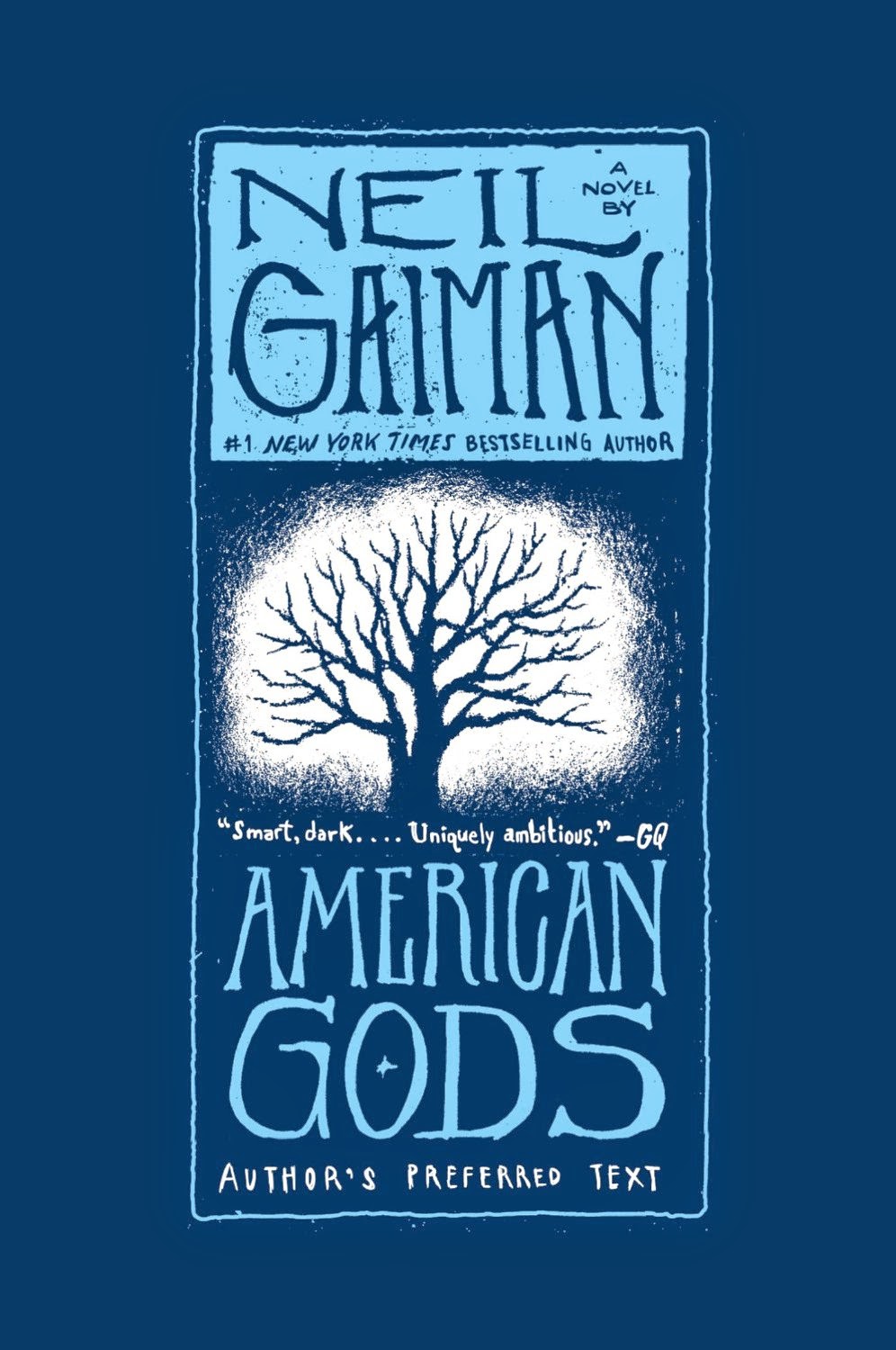Gaiman has an amazing world view. Although I cannot say that I get through his novels at a speedy pace, they are really, really good and completely original.
How to describe this book? Part mythology, part character, part story, part redemption? To have been a fly on the wall when Gaiman and Pratchett were in to their cups telling stories would have been a truly magical thing. I am sitting here wondering what to write about this book. It is truly a different kind of fantasy book, one that raises some really interesting points along the way. Gaiman is truly brilliant, and I am reminded of writers like Christopher Moore in a way, where their intelligence catches you a bit off guard, and the stories are just so unique that you have to digest them before you can truly understand how they have impacted you.
Here a few random quotes to give you an impression of this book:
From chapter 10 (this one struck home a little having a few folks close to me enjoy gambling)
- There is a secret that the casinos possess, a secret they hold and guard and prize, the holiest of their mysteries. For most people do not gamble to win money, after all, although that is what is advertised, sold, claimed, and dreamed. But that is merely the easy lie that gets them through the enormous, ever-open, welcoming doors.
The secret is this: people gamble to lose money. They come to the casinos for the moment in which they feel alive, to ride the spinning wheel and turn with the cards and lose themselves, with the coins, in the slots. They may brag about the nights they won, the money they took from the casino, but they treasure, secretly treasure, the times they lost. It's a sacrifice, of sorts.
From chapter 11 - this passage has stayed with me, and not just because the John Donne quote -
- No man, proclaimed Donne, is an Island, and he was wrong. If we were not islands, we would be lost, drowned in each other’s tragedies. We are insulated (a word that means, literally, remember, made into an island) from the tragedy of others, by our island nature, and by the repetitive shape and form of the stories. The shape does not change: there was a human being who was born, lived, and then, by some means or another, died. There. You may fill in the details from your own experience. As unoriginal as any other tale, as unique as any other life. Lives are snowflakes — forming patterns we have seen before, as like one another as peas in a pod (and have you ever looked at peas in a pod? I mean, really looked at them? There’s not a chance you’d mistake one for another, after a minute’s close inspection), but still unique.
- Without individuals we see only numbers: a thousand dead, a hundred thousand dead, "casualties may rise to a million." With individual stories, the statistics become people — but even that is a lie, for the people continue to suffer in numbers that themselves are numbing and meaningless. Look, see the child’s swollen, swollen belly, and the flies that crawl at the corners of his eyes, his skeletal limbs: will it make it easier for you to know his name, his age, his dreams, his fears? To see him from the inside? And if it does, are we not doing a disservice to his sister, who lies in the searing dust beside him, a distorted, distended caricature of a human child? And there, if we feel for them, are they now more important to us than a thousand other children touched by the same famine, a thousand other young lives who will soon be food for the flies’ own myriad squirming children?
We draw our lines around these moments of pain, and remain upon our islands, and they cannot hurt us. They are covered with a smooth, safe, nacreous layer to let them slip, pearllike, from our souls without real pain.
Fiction allows us to slide into these other heads, these other places, and look out through other eyes. And then in the tale we stop before we die, or we die vicariously and unharmed, and in the world beyond the tale we turn the page or close the book, and we resume our lives.
A life that is, like any other, unlike any other.
From chapter 18
- None of this can actually be happening. If it makes you more comfortable, you could simply think of it as metaphor. Religions are, by definition, metaphors, after all: God is a dream, a hope, a woman, an ironist, a father, a city, a house of many rooms, a watchmaker who left his prize chronometer in the desert, someone who loves you — even, perhaps, against all evidence, a celestial being whose only interest is to make sure your football team, army, business, or marriage thrives, prospers, and triumphs over all opposition.
Religions are places to stand and look and act, vantage points from which to view the world.
- People believe, thought Shadow. It's what people do. They believe. And then they will not take responsibility for their beliefs; they conjure things, and do not trust the conjurations. People populate the darkness; with ghosts, with gods, with electrons, with tales. People imagine, and people believe: and it is that belief, that rock-solid belief, that makes things happen.
- "This is a bad land for gods," said Shadow. As an opening statement it wasn't Friends, Romans, countrymen, but it would do. "You've probably all learned that. The old gods are ignored. The new gods are as quickly taken up as they are abandoned, cast aside for the next big thing. Either you've been forgotten, or you're scared you're going to be rendered obsolete, or maybe you're just getting tired of existing on the whim of people."

No comments:
Post a Comment